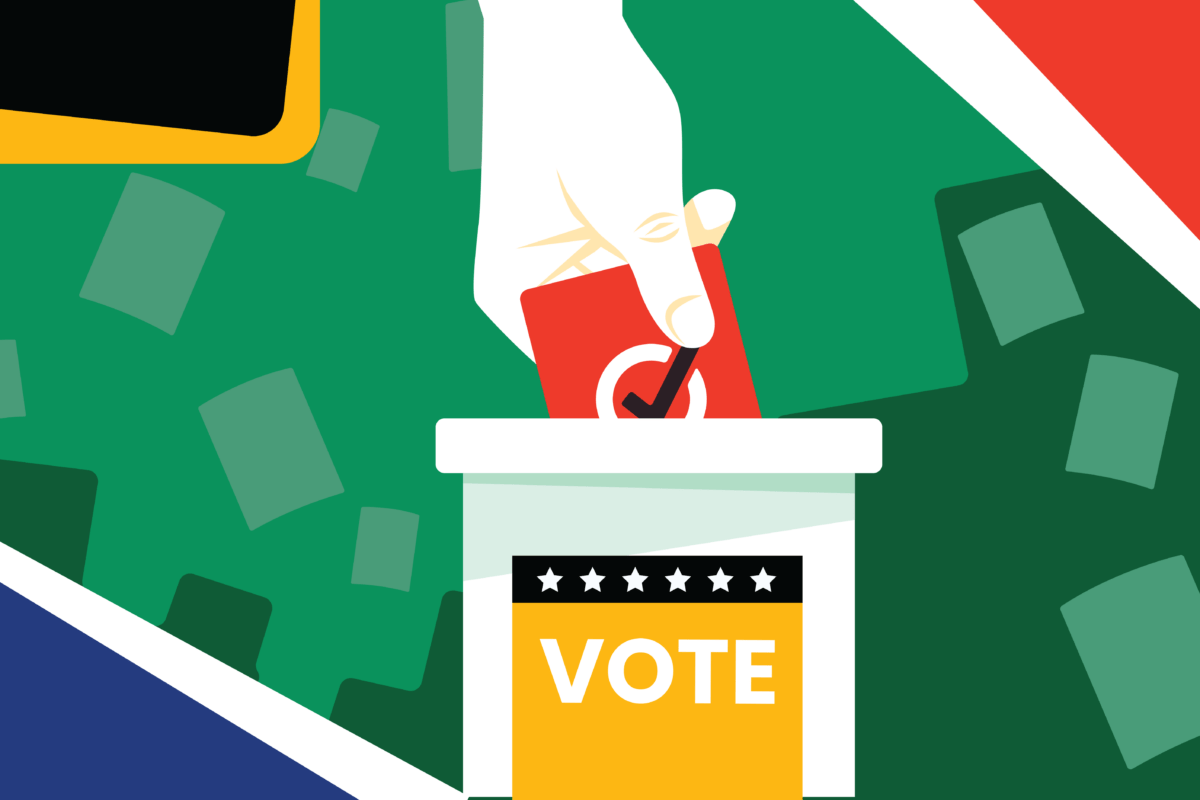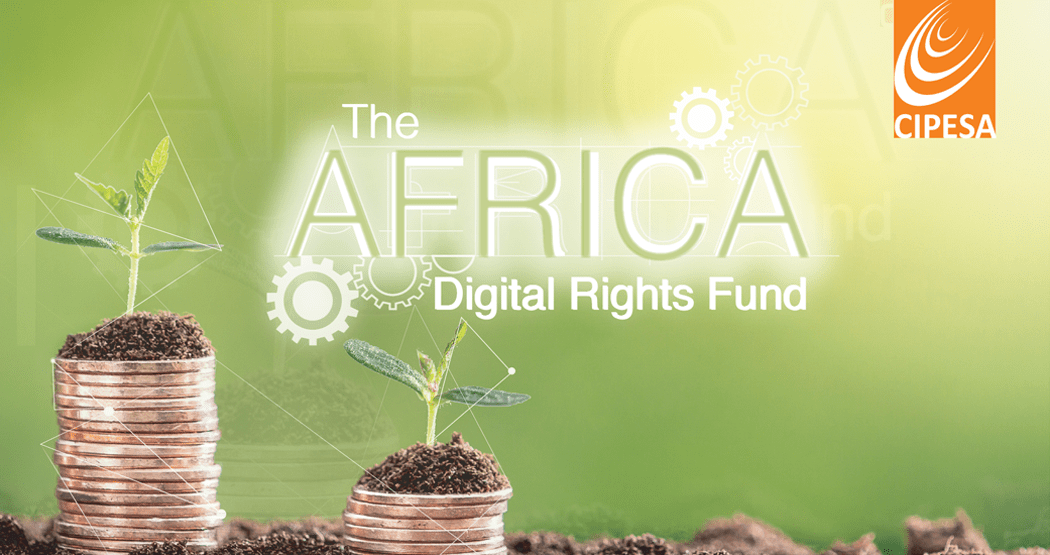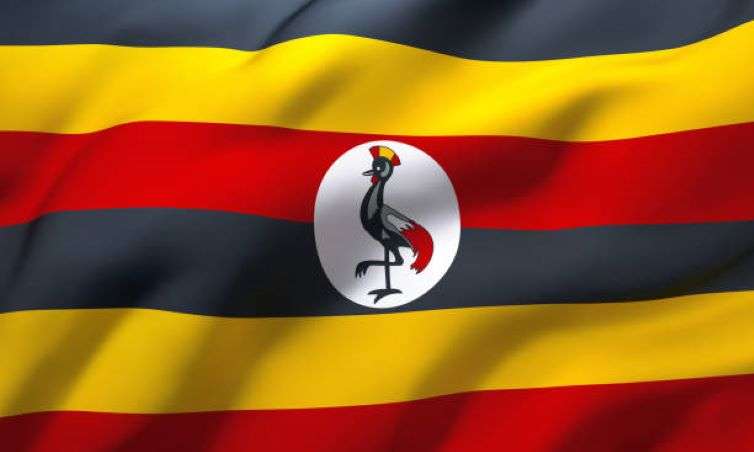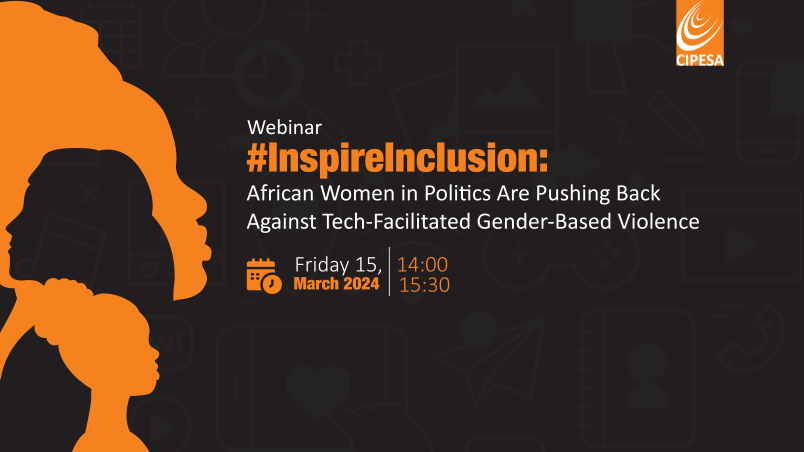By Victor Kapiyo |
South Africa is holding its seventh general election today, May 29, 2024. Over 14,000 candidates are vying for seats as part of the 400 members of the National Assembly and at least 445 members of Provincial Legislatures in the nine provinces.
Ahead of the election, misinformation, disinformation and threats to privacy rights have been noted. These capitalise on the issues at stake in the election, such as poverty and economic inequality, unemployment, violent crime, corruption, service delivery failures, difficult race relations, and xenophobia to polarise and shape public opinion. There has been a proliferation of propaganda and doctored news stories, deployment of coordinated trolls, troops and bots of online influencers as part of smear campaigns, and weaponisation of disinformation campaigns for political purposes, which many warn could undermine the integrity of the elections.
A new Policy Brief by the Collaboration on International ICT Policy (CIPESA) reviews how different actors, including political parties, the Independent Electoral Commission (IEC), and social media platforms have leveraged technology to promote a peaceful and credible election. However, the brief also notes that as the internet, social media and technology adoption increase, attacks on information and election integrity could intensify if multi-actor action does not continue to be taken.
The election pits the ruling African National Congress (ANC) against its main rivals, the Democratic Alliance (DA) and the Economic Freedom Fighters (EFF), even as newer parties such as uMkhonto weSizwe join the fray. The country of 60.7 million people has 27.6 million registered voters, of whom 44.7% are men and 55.2% are women.
South Africa has been renowned for its strong and independent judiciary, free press, vibrant democracy, and generally free and fair elections over the years. However, rankings in press freedom have declined due to increased attacks against journalists, especially by politicians, ahead of the elections.
As of 2024, the country had 45.3 million internet users, representing an internet penetration rate of 74%, and 118.6 million mobile connections, equivalent to a mobile penetration rate of 195%. Also, most people in the country are digitally literate, with the average internet user spending over nine hours a day online. Political parties have leveraged online platforms for political advertising and have since January 2024 spent ZAR 4.94 million (USD 269,961) on Google Ads, with the DA and Freedom Front Plus spending 79.8% of this amount. These developments mean that technology and the internet will play an important role in the election period.
Yet disinformation has taken centre-stage in the election. Some of the misleading information has targeted prominent personalities such as politicians and musicians, highlighted racial and xenophobic undertones or misled the public about the elections. For example, a ‘deepfake’ video published on TikTok and X in March 2024, depicted former United States (US) president Donald Trump endorsing the new uMkhonto weSizwe (MK) party. It was debunked by AFP, which found that the clip was an altered 2017 NBC interview with Trump.
On January 19, a viral video from Brazil of two men assaulting another man was disseminated on social media with the claim that the victim was a white farmer and his assailants were linked to the EFF. Another video that went viral on Facebook and WhatsApp in April made a false claim that Mozambican migrants were being issued with ID cards by state agents to vote in Gauteng province. Another post on May 25 on Facebook, claimed that voters must bring their black ballpoint pens to voting stations as they will only be given pencils to vote, and their marks would be erased upon voting. The IEC rejected this claim as untrue.
In addition, there have been attempts to impersonate key election officials on social media, and concerns around voters’’ privacy and data breaches. For example, in January, it was reported that the IEC Chairperson, Mosotho Moepya had been a victim of an imposter on WhatsApp. The imposter had on two separate incidents conversed with unsuspecting officials of political parties purporting to arrange to influence the election.
Ahead of the elections, various stakeholders and groups have been taking action to address the potential threats to election and information integrity. There are commendable efforts such as the adoption of the Principles and Guidelines for the Use of Digital and Social Media in Elections in Africa; the signing of the election code of conduct by political parties and candidates; and the use of digital platforms by the IEC to share information on election results, political party statistics, voter registration, voter information, voter education, and e-learning. South Africa’s Information Regulator also published a guidance note on how political parties and candidates could use the personal information of voters ahead of the elections.
There are also laudable efforts such as the Real411 portal to track misinformation and disinformation; enhanced efforts to act-check by Africa Check and AFP; and measures by platforms such as Google, Meta, and TikTok to promote election integrity, including working with fact-checkers, conducting content moderation and labelling, media information literacy, transparency on political advertising and directing users to reliable and trustworthy information.
From the foregoing, it is clear that the fault lines that have fragmented the unity of the Rainbow Nation are being manipulated in ways that threaten its democracy. Various stakeholders must continue to make concerted efforts to promote a healthy information ecosystem and to defend electoral integrity. Therefore, we make the following recommendations:
We call upon all stakeholders including civil society, the IEC, social media platforms, media, fact-checking organisations, political actors, election observers, and law enforcement to be vigilant before, during and after the elections.
We call upon stakeholders to collaborate in monitoring digital threats to election and information integrity and implement robust responses to combat them whilst protecting digital rights.
We call upon civil society and election observers to document the actions of and hold the government, IEC, social media platforms and other actors accountable for their responses.
We call upon the IEC, political parties, candidates and social media platforms to adhere to the Principles and Guidelines for the Use of Digital and Social Media in Elections in Africa.
Read the full Brief here.





